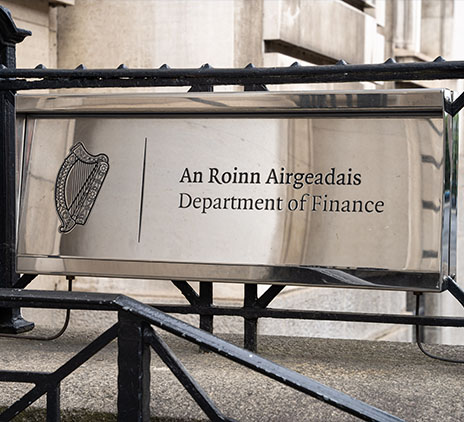-
Aviation Advisory
Our dedicated Aviation Advisory team bring best-in-class expertise across modelling, lease management, financial accounting and transaction execution as well as technical services completed by certified engineers.
-
Consulting
Our Consulting team guarantees quick turnarounds, lower partner-to-staff ratio than most and superior results delivered on a range of services.
-
Business Risk Services
Our Business Risk Services team deliver practical and pragmatic solutions that support clients in growing and protecting the inherent value of their businesses.
-
Deal Advisory
Our experienced Deal Advisory team has provided a range of transaction, valuation, deal advisory and restructuring services to clients for the past two decades.
-
Forensic Accounting
Our Forensic and Investigation Services team have targeted solutions to solve difficult challenges - making the difference between finding the truth or being left in the dark.
-
Financial Accounting and Advisory
Our FAAS team designs and implements creative solutions for organisations expanding into new markets or undertaking functional financial transformations.
-
Restructuring
Grant Thornton is Ireland’s leading provider of insolvency and corporate recovery solutions.
-
Risk Advisory
Our Risk Advisory team delivers innovative solutions and strategic insights for the Financial Services sector, addressing disruptive forces, regulatory changes, and emerging trends to enhance risk management and foster competitive advantage.
-
Sustainability Advisory
Our Sustainability Advisory team works with clients to accelerate their sustainability journey through innovative and pragmatic solutions.

-
 Asset management Asset management of the futureIn today’s global asset management landscape, there is an almost constant onslaught of change and complexity. To combat such complex change, asset managers need a consolidated approach. Read our publication and find out more about what you can achieve by choosing to work with us.
Asset management Asset management of the futureIn today’s global asset management landscape, there is an almost constant onslaught of change and complexity. To combat such complex change, asset managers need a consolidated approach. Read our publication and find out more about what you can achieve by choosing to work with us. -
 Internal Audit Maintaining Compliance with New EU Pension Directive IORP IIOn 28 April 2021, the Irish Government transposed IORP II (Institution for Occupational Retirement Provision), an EU directive on the activities and supervision of pension schemes, into law.
Internal Audit Maintaining Compliance with New EU Pension Directive IORP IIOn 28 April 2021, the Irish Government transposed IORP II (Institution for Occupational Retirement Provision), an EU directive on the activities and supervision of pension schemes, into law. -
 Risk, Compliance and Professional Standards FRED 82 – Periodic Updates to FRS 100 – 105The concept of a new suite of standards for the UK and Ireland, aligning with international financial reporting standards, was first conceived in 2002
Risk, Compliance and Professional Standards FRED 82 – Periodic Updates to FRS 100 – 105The concept of a new suite of standards for the UK and Ireland, aligning with international financial reporting standards, was first conceived in 2002 -
 Audit and Assurance Auditor transition: how to achieve a smooth changeoverAppointing new auditors may seem like a daunting task that will be disruptive to your business and a drain on the finance function. Nevertheless, there are a multitude of reasons to consider a change, including simply seeking a ‘fresh look’ at the business.
Audit and Assurance Auditor transition: how to achieve a smooth changeoverAppointing new auditors may seem like a daunting task that will be disruptive to your business and a drain on the finance function. Nevertheless, there are a multitude of reasons to consider a change, including simply seeking a ‘fresh look’ at the business.
-
Corporate Tax
Our Corporate Tax team is made up of more than 40 highly experienced senior partners and directors who work directly with a wide range of domestic and international clients; covering Corporation Tax, Company Secretarial, Employer Solutions, Global Mobility and Tax Incentives.
-
Financial Services Tax
The Grant Thornton team is made up of experts who are fully up to date in terms of changing and evolving tax legislation. This is combined with industry expertise and an in-depth knowledge of the evolving financial services regulatory landscape.
-
Indirect Tax Advisory & Compliance
Grant Thornton’s team of indirect tax specialists helps a range of clients across a variety of sectors including pharmaceuticals, financial services, construction and property and food to navigate these complexities.
-
International Tax
We develop close relationships with clients in order to gain a deep understanding of their businesses to ensure they make the right operational decisions. The wrong decision on how a company sells into a new market or establishes a new subsidiary can have major tax implications.
-
Private Client
Grant Thornton’s Private Client Services team can advise you on all areas of financial, pension, investment, succession and inheritance planning. We understand that each individual’s circumstances are different to the next and we tailor our services to suit your specific needs.

Implementing change in the workplace has long been a challenge for management teams both in Ireland and around the world. This challenge is not exclusive to the private sector. Naturally, many resist change as it interferes with autonomy, and introduces an element of uncertainty to the workplace. Add Brexit into the mix and its ability to unsettle even the most resilient of workforces can hinder even the most straightforward change programmes from a people perspective. Furthermore, the digital age has introduced an unsettling era of change that is fast moving and unfamiliar. With advances in areas such as Automation and Artificial Intelligence, it is easy for employees and volunteers to be unnerved by new initiatives and pushed into a state of inertia. However, it is important to ensure employees and volunteers remain central in change efforts, in order to maximise the chances of success and making your organisation sustainable.
Considering the speed of evolution in technologies today, how are Charities and Not for Profit organisations not of scale, going to transition and more so, afford these innovations? Jumping on the bandwagon of implementing artificial intelligence related products will only develop gaps between your people and your organisation. Change is a journey that requires both people and technology to travel together, so it is important that both are on the same road and not at the crossroads of separation.
Previously, visionaries such as Frederick Taylor and his ideation of Scientific Management would have prioritised processes and systems over people. Taylor himself is quoted as saying:
‘‘In my system, the workman is told precisely what he is to do and how he is to do it, and any improvement he makes upon the instructions given to him is fatal to success.’’
This outlook is echoed by others throughout the 70’s with the opinion that ‘‘People are trouble, but machines obey’’, or ‘‘Robots don’t strike”. Although Taylor experienced impressive success with his approach across much of the 20th century, it is important to understand that this approach is inherently outdated. The issue with this formalised outlook is that it fails to utilise one of society’s most precious assets, which is the skill and creativity of its people. A people-centric approach to change ensures present-day initiatives avoid the same pitfall.
A common issue with modern change efforts is that new initiatives such as unfamiliar technologies often lie outside the skillset of incumbent workforces, which creates an obvious tension between management and employees. A people-centric approach helps to re-align such change as an opportunity, rather than a threat.
One way to achieve this is by creating a healthy learning culture. As mentioned previously, the digital age has accelerated the rate of change, meaning formal training programmes often struggle to keep up. As such, a continuous learning culture with broadly available training is paramount in order to repeatedly enhance employees’ skills, and sustain a talent pipeline. A challenge to consider within the NFP area is developing the motivation and budget for employees and volunteers to upskill and embrace such change.
Another important element in a people-centric change model is to engage employees in the transition, rather than simply guide them through it. By presenting the change as a pathway to professional and personal improvement, employees will not only get on board with the change initiative, but also contribute to it.
This approach can essentially be viewed as a means of growing your workforce. When cross-referencing the required skills for change vs the current skill sets of your workforce and volunteers, it is important to think beyond the talent market when addressing shortages that may result due to the volatility of today’s markets and a potential Brexit. Instead, by looking to grow your own talent and volunteers pool, you can facilitate a cooperative change process; and one, which is rewarding to both you and your teams. Ultimately, management must communicate change as a genuine opportunity for their people, and not as a threat. By inspiring your teams of staff and volunteers with the why, you can help minimise resistance on the how.












